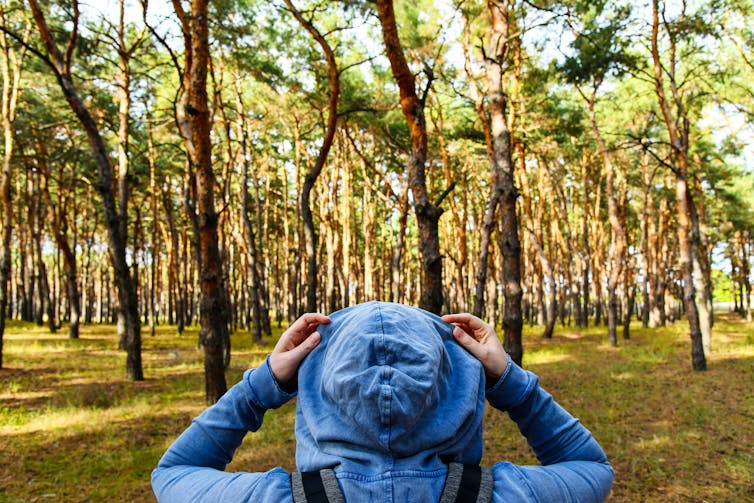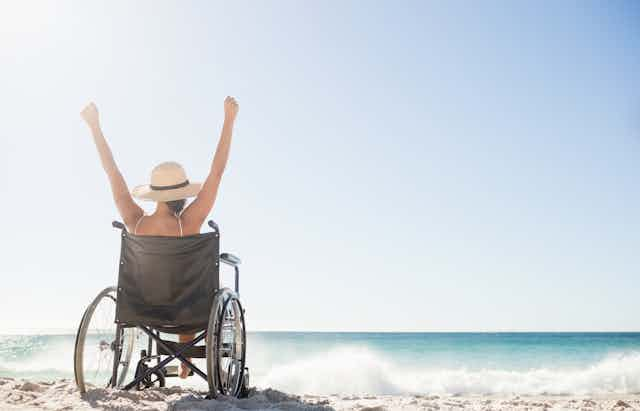As restrictions are gradually lifted, travelling abroad will be a high priority for many people. But for a disabled person, getting away on holiday can seem like a distant dream – with or without a pandemic.
People with disabilities are still subjected to systematic discrimination when it comes to travel. They face barriers that non-disabled people do not, which can prevent them from going on holiday – or at least drastically limit their choice about where to go and what to do.
Even before COVID-19, one survey found that 52% of adults with a disability in the UK had not taken a holiday anywhere in the previous 12 months.
The reasons are well known. Disabled people are often deprived of key three things: good information, appropriate facilities and positive attitudes from other people.
To this end, many countries, including the UK, have introduced specific legislation to address these inequalities. The United Nations’ Declaration on the Rights of People with Disabilities asserts the rights of disabled people to participate in cultural life, leisure, recreation and sports.
You might expect this kind of political action means disabled people have equal access to travel. But when I interviewed disabled travellers and people who work in ecotourism – in the UK, US, Australia, Canada and Sweden – it became apparent that many holiday providers fail to value their disabled customers.
There are some for example, who merely aim to comply with regulations. They do not think there is a sufficient market for disabled guests, so they only made practical changes – such as investing in ramps – if the law strictly demanded it.
One disabled traveller told how he mentioned to an ecolodge manager: “You just need to fix a couple of things in the room and it’ll be good.”
The manager replied: “Why should we bother? We don’t make enough money out of you guys to really justify it.”
Other business owners found such changes expensive to implement, but were motivated by keeping up with “good practice”. For this group, being disability-friendly made good business sense – but their efforts were often incomplete, only featuring in certain parts of the site for example, or for one particular kind of disability.
As one study participant noted: “Instead of having the whole place accessible, mobility-wise, we just make sure at least two of the units and the main public areas are. That’s an alternative that seems to have worked.”
It may seem odd that ecotourism – a form of tourism that values ethics and sustainability – does not appear to be leading the industry in tearing down barriers to disabled travel.
But recent research found that even businesses with the highest level of ecotourism accreditation did little to accommodate the needs of disabled guests.
Universal travel
With respect to information, only 2% of the websites in that study – which focused on Australia – had a detailed information pack for disabled people to download. And while some businesses considered themselves to be disability-friendly, facilities tended to only consider wheelchair access.
Even then, only 40% of all the websites provided any information to wheelchair users, while 6% mentioned visual disabilities and 8% referred to hearing loss. When it came to intellectual disabilities, only 8% even mentioned them.
Almost all of the websites failed to extend simply courtesies, such as using captions (known as alternative text) to explain to people with visual disabilities what is depicted in a photograph, or subtitling video material to help people with hearing disabilities. A quarter of the businesses required disabled people to contact them ahead of the visit to enquire about suitable facilities.

Thankfully, there are also operators who believe ensuring that disabled people have an equal quality of experience to non-disabled people is an essential condition of being in business.
This kind of approach needs to spread more widely. Disabled people will only truly have a right to a holiday when tourism businesses start to invest in adaptations for them. This means making provisions not only for wheelchair users but for all disability groups.
It also means adapting business practices, updating websites and training staff to be able to serve their disabled guests appropriately and sensitively.
It is estimated that there are around a billion disabled people across the world, representing around 15% of the world’s population. If the tourism industry is not willing to ensure these guests are treated as equals, that should make everyone uncomfortable. If society wants to see travel as a human right, it should be a right for everyone.

